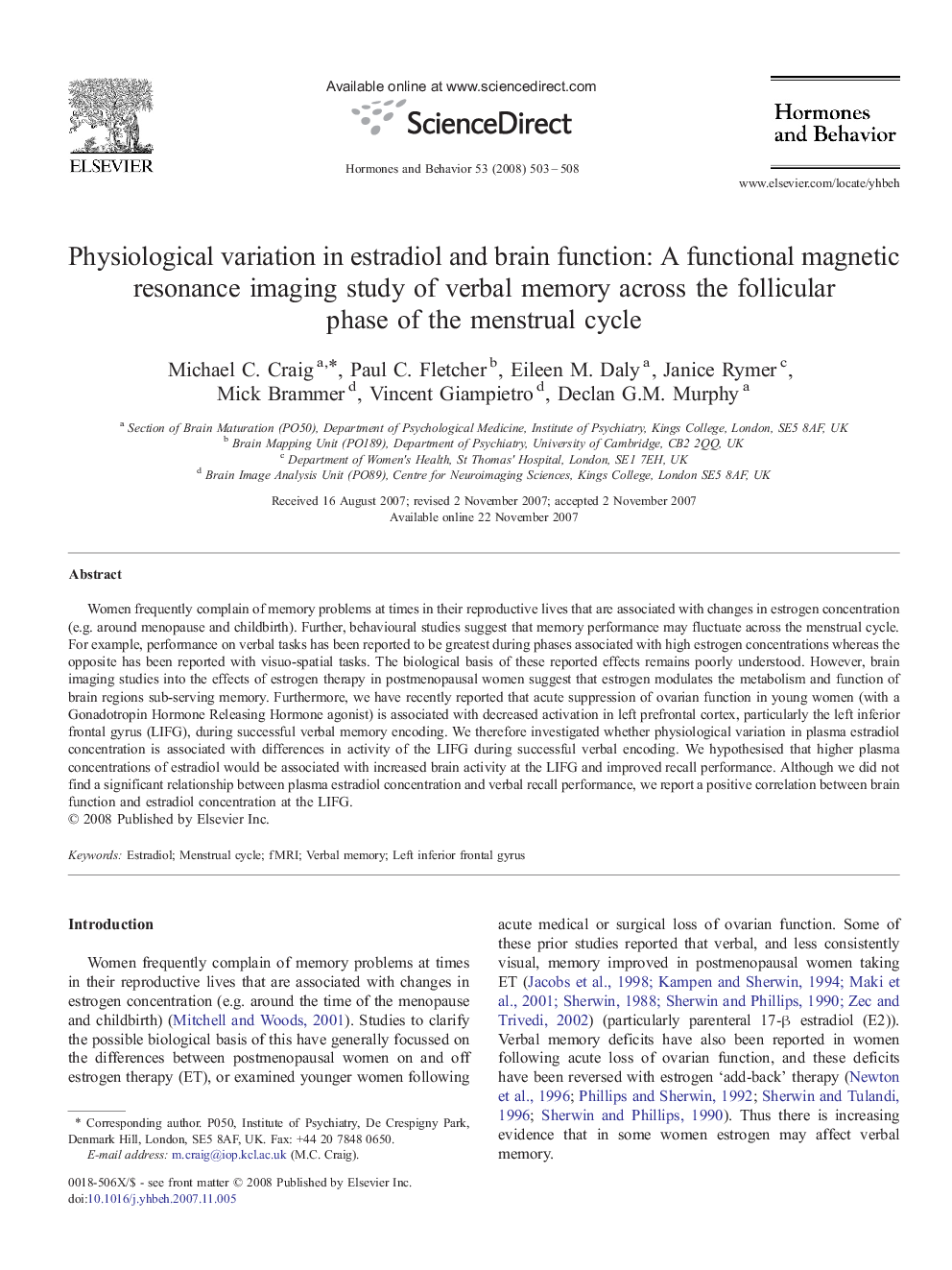| Article ID | Journal | Published Year | Pages | File Type |
|---|---|---|---|---|
| 323270 | Hormones and Behavior | 2008 | 6 Pages |
Women frequently complain of memory problems at times in their reproductive lives that are associated with changes in estrogen concentration (e.g. around menopause and childbirth). Further, behavioural studies suggest that memory performance may fluctuate across the menstrual cycle. For example, performance on verbal tasks has been reported to be greatest during phases associated with high estrogen concentrations whereas the opposite has been reported with visuo-spatial tasks. The biological basis of these reported effects remains poorly understood. However, brain imaging studies into the effects of estrogen therapy in postmenopausal women suggest that estrogen modulates the metabolism and function of brain regions sub-serving memory. Furthermore, we have recently reported that acute suppression of ovarian function in young women (with a Gonadotropin Hormone Releasing Hormone agonist) is associated with decreased activation in left prefrontal cortex, particularly the left inferior frontal gyrus (LIFG), during successful verbal memory encoding. We therefore investigated whether physiological variation in plasma estradiol concentration is associated with differences in activity of the LIFG during successful verbal encoding. We hypothesised that higher plasma concentrations of estradiol would be associated with increased brain activity at the LIFG and improved recall performance. Although we did not find a significant relationship between plasma estradiol concentration and verbal recall performance, we report a positive correlation between brain function and estradiol concentration at the LIFG.
